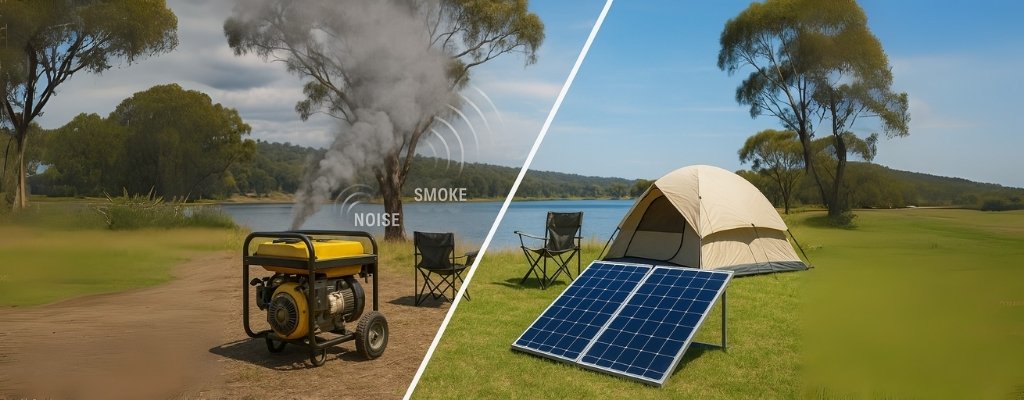
Why Are Generators Banned?
Ever fired up a generator at a campsite, only to cop dirty looks from the neighbours — or even a fine? The short answer: generators are banned because of noise, emissions, and safety risks. Stick around to see how Aussie rules work, the penalties, and the cleaner alternatives.

The Environmental Impact of Generators
Generator Air Emissions and Regulatory Tiers
Generators don’t just hum away quietly in the background. They pump out smoke and gases that hang in the air, making it harder for everyone to breathe. Carbon monoxide, nitrogen oxides, and fine dust particles are all part of the mix.
In cities where air quality is already strained, these extra emissions can tip the balance. That’s why regulators have tightened the screws on what types of generators can be sold and used.
Understanding the EPA's Tier Ratings
The Environmental Protection Authority (EPA) uses a tier system to rank engine emissions. Tier 1 machines are the old clunkers with minimal controls. Tier 4 models, on the other hand, are modern and much cleaner.
Plenty of cheap portable generators don’t meet the higher standards. If you’ve ever wondered why a bargain-bin model gets pulled from sale, chances are it failed these requirements.

The Nuisance of Generators
The Problem of Generator Noise Pollution
Anyone who’s camped next to a generator will tell you the same thing — they’re loud. Even the so-called “quiet” units can run at the noise level of a vacuum cleaner. That’s not exactly peaceful when you’re trying to enjoy the bush.
Noise doesn’t just irritate people. Studies show constant low-frequency hums can stress wildlife and disrupt natural behaviour. So it’s not just humans that benefit from noise limits.
Local Ordinances and Quiet Hours
Councils and campgrounds usually set “quiet hours.” This means no noisy machinery after a certain time, often around 10pm. It keeps things fair for everyone trying to get some rest.
Break those rules and you may find a ranger knocking on your door, or worse, a fine in your letterbox. The rules aren’t about spoiling fun — they’re about keeping communities liveable.

The Legal and Safety Risks of Generators
Diesel generator permission and local laws
Diesel generators are powerful, but that doesn’t mean you can run one anywhere you like. In many suburban areas, using one without approval is a fast track to complaints and council action.
Industrial sites and farms often need special permits or environmental checks before firing one up. Without them, the operator risks hefty penalties.
The consequences of using an illegal generator
Using a non-approved generator can leave you out of pocket very quickly. Councils have the power to fine, confiscate, or even shut down operations where illegal machines are in play.
A common mistake people make is thinking “it’s just for a few hours.” But if a neighbour reports it, the consequences can be far bigger than you expect.

The dangers of improper generator use
Safety is another reason regulators take a hard line. Carbon monoxide poisoning has caused deaths in Australia when generators were run in garages or enclosed spaces. It’s invisible, odourless, and deadly.
Then there are fire and shock risks. In a country as dry and bushfire-prone as ours, even a small spark can turn into a major disaster. That’s why safety standards exist.
Camping generator rules and safe operation
Plenty of national parks and private campgrounds now ban generators altogether. Others only allow them in certain sections or during limited hours.
Where they are permitted, the rules are clear: keep them well away from tents and caravans, never run them indoors, and refuel carefully. Following these basics not only keeps you safe but ensures everyone else can enjoy the space too.
Conclusion
In summary, generators are banned or heavily restricted across Australia for good reason. They pollute the air, keep communities awake, and can be downright dangerous if used the wrong way.
By understanding the environmental impact, respecting noise rules, and following local laws, you can avoid fines and find safer ways to power your adventures. Whether that’s inverter technology or solar panels, there are cleaner options out there that won’t land you in strife.


